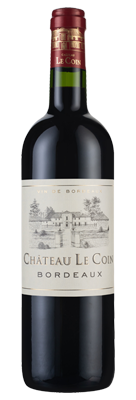Filter by
- Rich, velvety red, brimful of luscious black fruit – a Portuguese triumph, always impressive value.$28.00 RRPfrom $19.99 when you mix 12+
- A seductive and velvety red wine, Rex Mundi will tempt you with its gorgeous, ripe fruit.$28.00 RRPfrom $18.99 when you mix 12+
- New release PG from Adelaide Hills vineyards of McLaren Vale's highly-respected Lloyd family.$22.00 RRPfrom $19.99 when you mix 12+
- Bestselling Bordeaux from Ludovic Roussillon at his small family estate with rich, velvety fruit.$32.00 RRPfrom $23.99 when you mix 12+
- "Generous" Cabernet from Trophy-winning Dandelion, with Platinum, Multiple Golds and high scores!$30.00 RRPfrom $23.99 when you mix 12+
- Another lovely and stylish vintage for this attractively named and hued rosé. Three Golds and 90pts.$28.00 RRPfrom $24.99 when you mix 12+
- 91pt, Great Value Langhorne Creek Cab Merlot combo “Remarkable quality at this price” (Halliday).$20.00 RRPfrom $16.99 when you mix 12+
- Triple Gold, 92pt Aussie classic blend from the dynamic Zonte's Footstep team.$30.00 RRPfrom $19.99 when you mix 12+
- 92pt Chardonnay from WA’s remote Great Southern, of “power & presence” (Halliday)$35.00 RRPfrom $29.99 when you mix 12+
- “Absolutely delightful” (WinePilot) 95pt flagship Reserve Shiraz from Clare Valley’s terrific Pikes.$75.00 RRPfrom $71.99 when you mix 12+
- 93pt “Elegantly complex and inviting…”(Wine Orbit) Chardonnay from the always colourful Vinaceous.$22.00 RRPfrom $18.99 when you mix 12+
- A new and delicious addition to Lake Breeze's exclusive Chapel Road range; a fabulous Malbec.$25.00 RRPfrom $18.99 when you mix 12+
- 93pt very appealing, “aromatically stunning” (WinePilot) – and highly drinkable Clare Valley pink.$24.00 RRPfrom $18.99 when you mix 12+
- $22.99 RRPfrom $15.99 when you mix 12+
- A very tasty McLaren Vale Cabernet Malbec lies behind this popular and memorable label!$25.00 RRPfrom $17.99 when you mix 12+
- "Outstanding vlaue" Cabernet with scores of 92 and 95pts.$22.00 RRPfrom $19.99 when you mix 12+
- Full-throttle flavour in this smooth, ripe Cab Shiraz made by the talented RedHeads$24.00 RRPfrom $16.99 when you mix 12+
- 95pt Margaret River Chardonnay – “Supremely elegant with enticing complexity” (Wine Orbit).$45.00 RRPfrom $39.99 when you mix 12+
- $17.99 RRPfrom $11.99 when you mix 12+
- A silky, bright Barbera red full of dark cherry fruit from Italy’s prized Piedmont region.$30.00 RRPfrom $21.99 when you mix 12+
- Well-balanced Cabernet from a secret McLaren Vale vineyard source and a ‘masked’. Winemaker.$35.00 RRP$28.99 when you mix 12+
- 94pt, Great Value complex Hunter Valley Semillon from the first rate Margan Family Estate.$40.00 RRPfrom $32.99 when you mix 12+
- Small batch Adelaide Hills Pinot Grigio made by the vastly experienced Ben Riggs.$25.00 RRPfrom $19.99 when you mix 12+
- Lavish premium, 2 x Gold-winning, 95pt Shiraz from 5 Red Star Tyrrell’s and “exciting” Heathcote.$40.00 RRPfrom $21.99 when you mix 12+





























